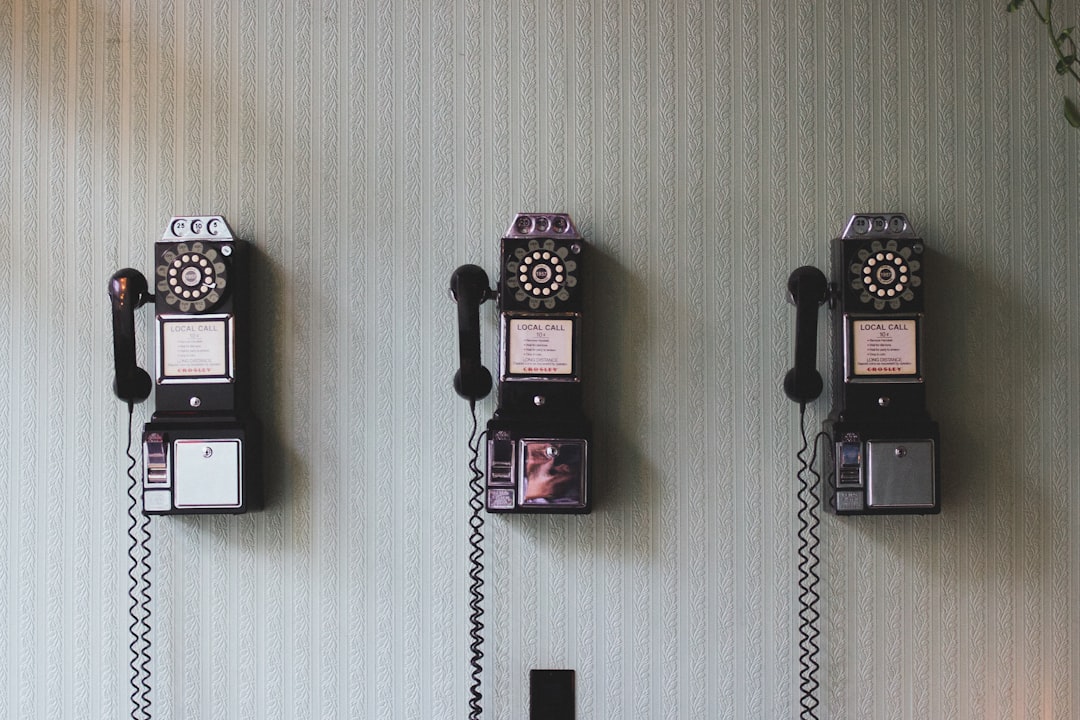Montana residents are protected from unwanted phone calls and text messages (robocalls) by the Telephone Consumer Protection Act (TCPA). Consumers can register on the National Do Not Call Registry or contact specialized Do Not Call Lawyers or Attorneys in Montana to block intrusives calls. Violators face penalties for ignoring TCPA regulations, with legal recourse available through these specialists.
In Montana, the Telephone Consumer Protection Act (TCPA) safeguards residents from intrusive and unwanted telephone calls. This comprehensive guide navigates your rights under the TCPA, empowering Montana residents to combat excessive robocalls and unsolicited sales pitches.
We explore who is protected, how to register on Do-Not-Call lists, and legal recourse against persistent violators. Learn when automated calls are permissible and discover a reputable Do Not Call Lawyer Montana or Do Not Call Attorney Montana to enforce your rights. Find out about successful TCPA cases and gain the knowledge to protect your peace of mind from relentless robocalls.
- Understanding the Telephone Consumer Protection Act (TCPA) in Montana
- Who is Protected by the TCPA in Montana?
- What are Your Rights as a Montana Resident Regarding Robocalls?
- Navigating Do-Not-Call Lists: How to Register and Enforcement
- Dealing with Unwanted Sales Calls: Legal Recourse for Montana Residents
- When is it Legal to Make Automated Telephone Calls in Montana?
- Choosing the Right Lawyer: Finding a TCPA Expert in Montana
- Success Stories: How Montana Residents Have Enforced Their TCPA Rights
Understanding the Telephone Consumer Protection Act (TCPA) in Montana
In Montana, the Telephone Consumer Protection Act (TCPA) plays a pivotal role in safeguarding consumers from unwanted phone calls, especially those originating from automated systems or prerecorded messages known as robocalls. The TCPA, enforced by both state and federal laws, grants consumers significant rights to control their phone lines and block intrusive calls. For residents of Montana seeking recourse against persistent robocallers, consulting with a Do Not Call Lawyer Montana or Do Not Call Attorney Montana is a crucial step. These legal professionals specialize in navigating the complexities of TCPA regulations and can offer guidance on how to enforce your rights effectively.
A Do Not Call law firm Montana will assist you in understanding that it’s illegal for businesses to make telemarketing calls to residential phone numbers without prior explicit consent, often obtained through verifiable opt-in methods. This includes not only unwanted sales calls but also political campaigns and charity solicitations. If your number is on the National Do Not Call Registry or you’ve registered with a Do Not Call attorney Montana to block specific callers, violators can face penalties. Engaging a lawyer for robocall Montana can help you determine if a call was made in violation of these laws and guide you through the process of seeking compensation or blocking future calls.
Who is Protected by the TCPA in Montana?
In Montana, the Telephone Consumer Protection Act (TCPA) protects all Montana residents from unwanted telemarketing calls and text messages, commonly known as robocalls. This includes both homeowners and renters who receive calls or texts on their personal phones. The TCPA specifically targets businesses and organizations that engage in automated or prerecorded telephone marketing calls without prior express consent.
If you are a Montana resident facing persistent robocalls or unauthorized telemarketing, knowing your rights under the TCPA is crucial. A Do Not Call Lawyer or attorney specializing in this area can help protect your rights as outlined by the law. Reputable Do Not Call law firms in Montana offer legal assistance to ensure that businesses comply with TCPA regulations and stop unwanted calls.
What are Your Rights as a Montana Resident Regarding Robocalls?
As a Montana resident, you have rights when it comes to unwanted robocalls. The Telephone Consumer Protection Act (TCPA) is a federal law designed to protect consumers from excessive and intrusive telephone marketing calls, including automated or prerecorded messages, often known as robocalls. This law grants individuals the right to silence these nuisance calls by registering their phone number on the National Do Not Call Registry.
If you’re receiving robocalls in Montana, you can take action. A Do Not Call lawyer or attorney in Montana can help you understand your rights and navigate any legal options available. Robocall law firms specializing in TCPA cases can provide guidance and representation to ensure your rights are protected. By understanding the regulations surrounding do-not-call laws, these professionals can assist in stopping unwanted calls and holding violators accountable.
Navigating Do-Not-Call Lists: How to Register and Enforcement
In Montana, consumers have a powerful tool to protect themselves from unwanted phone calls—the Do-Not-Call (DNC) list. Navigating this system is straightforward, but it’s crucial to understand your rights and how to ensure compliance. The first step for Montanans is to register their phone numbers on the state’s official DNC list. This can be done online through the Montana Department of Justice website or by submitting a form via mail. Once registered, your number becomes part of a comprehensive database that robocallers are legally required to respect.
Enforcement of these rights is taken seriously in Montana. If you suspect a violation, especially from a robocaller, you can file a complaint with the Montana Attorney General’s Office. A Do Not Call Lawyer or attorney in Montana can guide consumers through this process, ensuring their complaints are properly documented and submitted. These legal professionals, often associated with robocall law firms in Montana, specialize in protecting consumer rights under the Telephone Consumer Protection Act (TCPA) and can offer expert advice when dealing with persistent violators.
Dealing with Unwanted Sales Calls: Legal Recourse for Montana Residents
In Montana, dealing with unwanted sales calls can be a persistent nuisance. However, residents have legal recourse under the Telephone Consumer Protection Act (TCPA). If your phone lines are consistently bombarded by robocalls or unsolicited marketing messages, you may have grounds to take action. A Do Not Call Lawyer Montana or Do Not Call Attorney Montana can help you navigate these issues and assert your rights.
Montana residents who feel their privacy has been invaded by excessive sales calls can file a complaint with the Federal Trade Commission (FTC) or seek legal counsel from a reputable Do Not Call law firm Montana. The FTC takes such complaints seriously, and violators may face penalties. Alternatively, hiring a Do Not Call lawyer Montana or Do Not Call attorneys Montana who specializes in robocall laws can offer more direct solutions, including sending cease-and-desist letters or filing lawsuits against persistent offenders.
When is it Legal to Make Automated Telephone Calls in Montana?
In Montana, the legality of automated telephone calls, or robocalls, is governed by the Telephone Consumer Protection Act (TCPA). While the TCPA provides significant protections for consumers against unwanted calls, it also outlines specific circumstances where automated calls are permitted. Companies and organizations can legally make automated phone calls to individuals in Montana under a few conditions. One such instance is when the caller has obtained prior express consent from the recipient, which must be voluntary and specifically given for the purpose of receiving automated calls. This consent can be provided through various means, including signing up for a marketing list or agreeing to receive robocalls during a transaction.
Additionally, certain exceptions allow for automated calls without explicit consent. For example, calls made for emergency purposes, collection activities, or political campaigns are generally permitted under Montana law. However, these calls must still adhere to strict regulations, such as providing an opt-out option and respecting individual choices to stop receiving such calls. It’s crucial for businesses operating in Montana to understand these legalities to avoid TCPA violations and the potential consequences, including financial penalties, faced by Do Not Call lawyers and attorneys specializing in this area.
Choosing the Right Lawyer: Finding a TCPA Expert in Montana
When seeking legal counsel in Montana for violations of the Telephone Consumer Protection Act (TCPA), it’s paramount to select an attorney with specialized knowledge in this area. The TCPA is a federal law designed to protect consumers from unwanted phone marketing calls, including robocalls, and laws vary by state. In Montana, individuals who feel their rights have been infringed upon by unsolicited calls can seek compensation.
Finding a Do Not Call Lawyer or Do Not Call Attorney in Montana with expertise in TCPA cases is crucial. Look for law firms specializing in consumer protection law, particularly those with experience handling robocall-related disputes. Reputable Do Not Call Law Firms in Montana will have a proven track record of successful TCPA litigation and be well-versed in the latest legal developments related to this act. Ensure they offer personalized attention and are dedicated to advocating for your rights as a consumer.
Success Stories: How Montana Residents Have Enforced Their TCPA Rights
Montana residents have successfully enforced their rights under the Telephone Consumer Protection Act (TCPA), with numerous cases resulting in favorable outcomes. Many individuals have sought legal assistance from Do Not Call lawyers Montana and robocall law firms Montana to combat unwanted telephone solicitations, particularly from automated or prerecorded calls, commonly known as robocalls.
These cases highlight the power of residents standing up for their rights. For instance, several Montana plaintiffs have reached settlements with companies that violated TCPA regulations, resulting in substantial monetary compensation and an end to the intrusive calling practices. Such success stories encourage others to take action if they’ve experienced similar issues, knowing there are legal avenues to resolve them. This proactive approach ensures that both individuals and businesses understand and respect consumer privacy rights as outlined by federal law.






